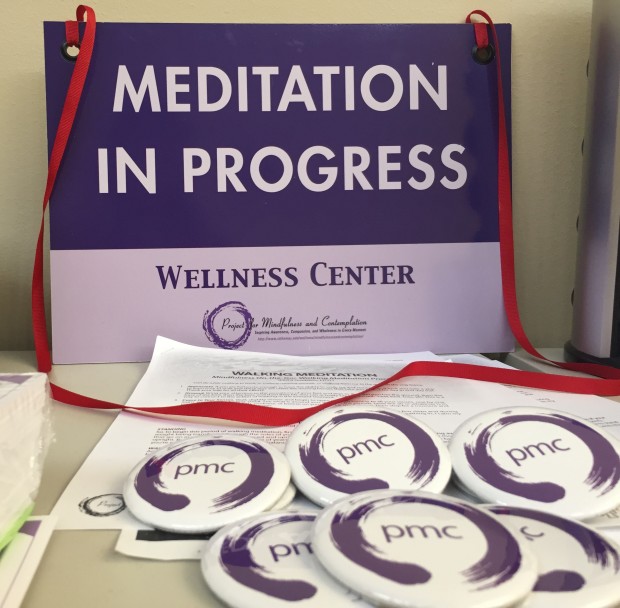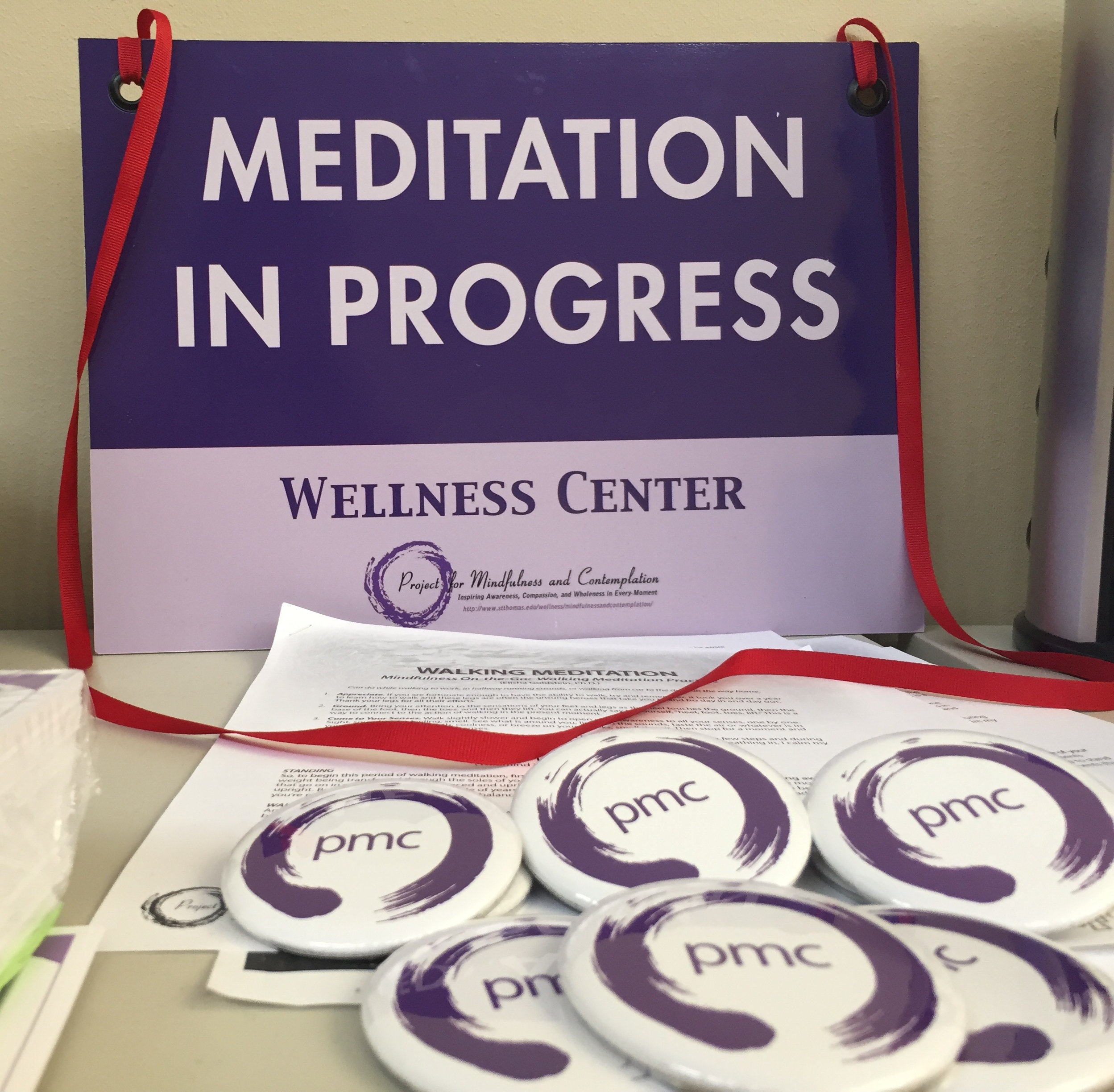
The Wellness Center hopes to increase interest in its Project Mindfulness Contemplation by adding meditation options that apply to people from all walks of life.
PMC is entering its third year and has added a podcast, a detailed workshop series and more sessions to make the experience more convenient for students, faculty and staff.
“The vision of the Project Mindfulness and Contemplation is to inspire awareness, contemplation and wholeness in every moment,” the mindfulness mission states. “Its mission is to create a safe space for supporting and educating the St. Thomas community in meditative and contemplative practices.”
Professors and faculty from different areas of study have worked to expand PMC, and they believe the benefits of meditation can extend to everyone. Theology professor and PMC co-director Thomas Bushlack said the program is focusing on making sessions more inclusive.
“We are really focused on helping people cultivate their own practice,” he said. “We want to offer different kinds of practices that are out there and different kinds of traditions and say ‘Here’s what this looks like if you’re committed to the Christian tradition; here’s what this looks like if you’re just interested in stress relief.’”
According to Bushlack, meditation can help participants manage stress as well as improve concentration and short-term memory. Bushlack said these things can make studying easier.
William Brendel, PMC co-director and assistant professor with St. Thomas’ organizational development program, said practicing mindfulness can have positive effects on anxiety, depression, creativity and the ability to accept others’ perspectives.
Last year PMC had an average of 10 participants per session, according to the project’s third co-director, Birdie Cunningham. This semester PMC hopes to gain more members and raise the average number.
Sophomore Dillon Duong said he and a few other members of PMC tried to recruit more people for the project at the activities fair. Doung said the program is worth a shot, even for people unfamiliar with meditation.
“You don’t have to be super committed,” Doung said. “If you’re feeling stressed or if you just need to kind of relax a little bit, I think it’s a good thing to try.”
Sophomore Jordan Pinnix began attending sessions this semester and thinks it is a positive way to fill up time in his schedule.
“I kind of look forward to it as a gap in the day where I’m not doing anything,” Pinnix said. “I like to stay busy, so it’s just kind of relaxing.”
The project is pushing for a centralized, full-time meditation space on campus, but for now, the Wellness Center in Murray-Herrick provides an enjoyable space for sessions.
PMC is advertising around campus as well as providing information sessions in residence halls and conducting in-class presentations. A long-term goal of the project is to eventually create a contemplative studies major and minor that would include classes from courses in theology, neuroscience and psychology, something Bushlack sees as necessary.
“Most of the contemplative studies programs out there at other universities completely ignore – not just Christian tradition – but really they ignore the whole western tradition,” Bushlack said.
PMC offers meditation sessions on the St. Paul and Minneapolis campus and also offers free podcasts aimed to make meditation possible anytime. Meditation times, events and information can be found at www.stthomas.edu/pmc.
Rachel Weiss can be reached at weis3565@stthomas.edu.

